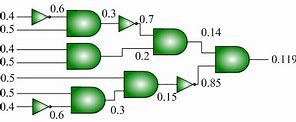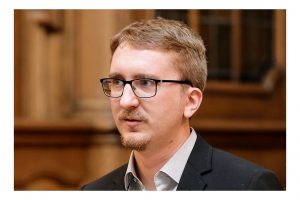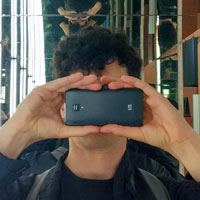
Speaker: Guy Van den Broeck - Antonio Vergari
Affiliation: UCLA - Computer Science


ABSTRACT:
Part 1: In several real-world scenarios, decision making involves complex reasoning, i.e., the ability to answer complex probabilistic queries (e.g., involving logical constraints), which allow only a limited amount of time to be answered. Moreover, in many sensitive domains like health- care and economical decision making, the result of these queries is required to be exact as approximations without guarantees would make the decision making process brittle.
In all these scenarios, tractable probabilistic inference and learning are becoming more and more mandatory.
In this tutorial, we will show how tractability is a continuum spectrum that can be traversed by trading-off model expressiveness and flexibility in answering complex probability queries. On one side of the spectrum we have recent neural estimators, e.g., variational autoencoders, which have very limited inference capabilities, and intractable classical probabilistic graphical models like bayesian and markov networks. On the other side, there are expressive but tractable models, like tree models and mixtures thereof.
We will introduce probabilistic circuits as probabilistic models allowing several complex probability query families to be answered exactly and efficiently with little or no compromise in terms of model expressiveness.
Furthermore, we will show how probabilistic circuits allow for a unifying computational framework under which one can make sense of the alphabet soup that populates the current landscape of tractable probabilistic models (ACs, CNs, DNNFs, d-DNNFs, OBDDs, PS- DDs, SDDs, SPNs, etc).
We will also discuss which structural properties on the circuits delineate each model class and enable different kinds of tractability.
We will provide a bridge between probabilistic circuits and their counter- parts in propositional logics, which we name logical circuits. Logical circuits have been extensively researched for decades in automated reasoning and verification communities.
We will also provide a unifying view for learning probabilistic circuits both their structures and parameters from data.
Lastly, we will showcase several successful application scenarios where probabilistic circuits have been employed as an alternative to or in conjunction with intractable models, including image classification, completion and generation, scene understanding, activity recognition, language and speech modeling, bioinformatics, collaborative filtering, verification and diagnosis.
BIO:
Guy Van den Broeck is an Assistant Professor at UCLA, where he directs the Statistical and Relational Artificial Intelligence (StarAI) lab. His work has been recognized with best paper awards from key artificial intelligence venues, and he is the recipient of the IJCAI-19 Computers and Thought Award.
BIO:
Antonio Vergari is a postdoc at UCLA working on enabling advanced probabilistic reasoning on deep representations. Previously, he was a postdoc at the MPI-IS, Tuebingen, working on automating machine learning via tractable models. He organized the Tractable Probabilistic Modeling workshop at ICML2019.
Location: Via Zoom Webinar
Date/Time:
Date(s) - May 12, 2020
4:15 pm - 5:45 pm
Location:
